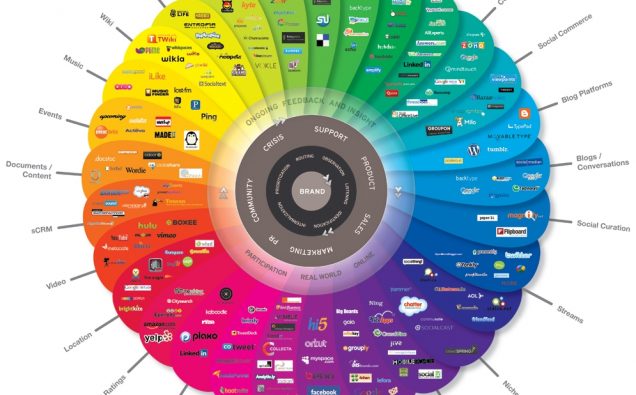
Photo by Brian Solis and JESS3/Wikimedia Commons
The Federal Communication Commission on Thursday voted 2-1 along party lines to launch the process of saying goodbye to net neutrality, which is deemed by its proponents as enabler of level-playing field in the world of Internet.
The opponents of net neutrality or Open Internet Order rules including the Internet Service Providers (ISPs) see it as as hindrance in the way of innovation and competition.
The net neutrality came into force in 2015 with a set of legal rules which forbid any discrimination in terms of pace of access to content of all web sites – affording visitors and consumers same level of access to various competitors.
Some of the major ISPs are Comcast and Verizon, while some of the leading web sites are Google and YouTube. Under the net neutrality rules, the ISPs cannot slow down the pace of or block access to any web sites.
The net neutrality is also evolving into a high-stakes issue for Democrats, who support it and Republicans, who oppose any restrictions in the way of business innovation and competition.
Thursday’s vote is the first significant move under FCC Chairman Ajit Pai, who favors innovation under his plan Restoring Internet Freedom, toward ending the net neutrality rules.
After this development the Commission will now receive public feedback in the form of comments for 90 days before moving ahead to come up with a proposal and then its implementation – a process that will take months and intense debate among stake-holders.
So, while, at the moment the net neutrality or open Internet is available to all including streaming services, web sites and consumers but that may not be the case in the future, depending upon the extent of the new proposal and the decision.
But the ISPs have often said they will not discriminate in terms of making available contents or web sites including their competitors, and that they want to be innovative in providing services and not be bound by open Internet rules.
On the other hand, small companies and new business entrants worry that they might not stand a chance of success if big players pay higher price to make their web sites, services, products or programs available at faster pace. That, critics fear, could particularly be the case with video content, which is also widely used on social media platforms.
What happens next will be important to all – political parties, the Internet business and consumers – and could possibly see involvement Congressional action or even legal court proceedings.















I’m really impressed with your writing skills and also with the layout on your weblog. Is this a paid theme or did you customize it yourself? Anyway keep up the nice quality writing, it is rare to see a great blog like this one these days.
It’s truly a great and helpful piece of information. I am glad that you shared this useful info with us. Please keep us up to date like this. Thank you for sharing.